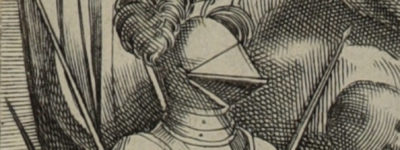The Experience of Enmity in Early Modern Europe

This paper is a chapter from the forthcoming book ‘Enmity and Violence in Early Modern Europe.’ The book transforms our understanding of Europe between 1400 and 1800 by using enmity as a means to rethink themes central to the emergence of the rise of the West. It examines how Europeans used the law in pursuing enemies and how they characterised their enmities and expressed their sense of justice or injustice; analyses when and why everyday animosities escalated into violence; explains how violence was mediated by the law and the social, communal and religious pressures for peace; explores the everyday experience of enmity and peace-making and the emotional field they inhabited; analyses the different social practices of enmity and how these where shaped by class and gender; and understands how notions of good neighbourliness and civil order worked to underpin trust in the state. The book is methodologically innovative. Focussing on England, France, Italy and Germany, it uses both printed normative literature and soundings in the judicial archives in four languages; offers new statistical evidence about long term rates of violence; makes novel use of ego-documents (diaries, reckoning books, memoirs etc), which is the subject of the chapter that is presented to you.
Chair: Umberto Cecchinato, Università degli Studi Roma Tre
Discussants:
Marc W. S. Jaffré, Durham University
Scientific coordination:
Massimo Rospocher, FBK-ISIG
Sandra Toffolo, FBK-ISIG
Enrico Valseriati, FBK-ISIG
Cycle of seminars: “Tavola ovale di storia moderna”
The event will be held in English
The presentation will take place online
To connect to the event, registration is required by Monday 23 May 2022 at 12.00 am
During the meeting, the webcam and microphone will be disabled to avoid network overloads
***
Immagine: Biblioteca FBK, D 814248 s-ar 1 C 30 (dettaglio)
Relatori
-
Stuart Carroll - SpeakerUniversity of YorkStuart Carroll is Professor of Early Modern History at the University of York. He is the author of 'Blood and Violence in Early Modern France' (2006) and one of the editors of the 'Cambridge World History of Violence: vol: 3 (1500-1800).' 'Martyrs and Murderers: the Guise Family and the Making of Europe' won the J. Russel Major prize of the American Historical Association in 2011. He has won the Nancy Roelker prize for the best article on early modern French history four times (1999, 2004, 2014 and 2020).
-
Umberto Cecchinato - Relatore ospiteUniversità degli Studi Roma Tre
-
Marc W.S. Jaffré - Relatore ospiteDurham University
Registrazione
La registrazione a questo evento è richiesta.
Registration closed on 23/05/2022.